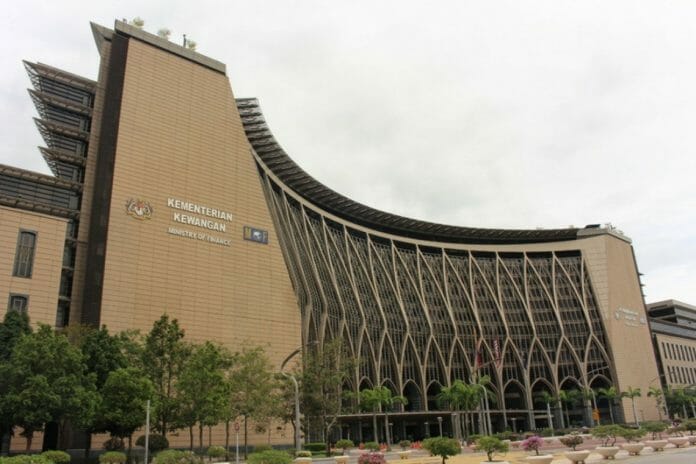Budget 2023 will be a wholesome allocation that will look into the wellbeing of the people and help them face challenges that come their way, said Prime Minister Datuk Seri Ismail Sabri Yaakob.
He recently said the government was aware of the challenges faced by the people such as the rising prices of goods. “Among our priorities are to create more jobs, increase the peoples’ income and ensure businesses can continue to operate.
Ismail Sabri added the government will also ensure a safe and conducive living environment with an inclusive development in line with Malaysia’s commitment to the Sustainable Development Agenda 2030.
Well, no clues as to how would this be done here as yet.
Some parties expect people-friendly announcements to be made coupled with strong rumours that it would be an election budget with “goodies” for individuals. But there are distinct challenges facing Malaysia today which causes concern on whether the government can actually fund such a ‘friendly’ budget amidst a time where experts call for the ‘belt to be tightened’ when it comes to spending.
Challenges Facing The Nation – The Rising Ringgit
The ringgit continued its downtrend on Monday due to the lack of catalysts amidst growing risk-off sentiment, on Sept 19, the local currency slipped to 4.5350/5405 against the greenback from 4.5340/5365 at Thursday’s close.
Kenanga Research said investors are keeping a close watch on the crucial United States Federal Reserve (Fed) monetary policy meeting later this week, where the Federal Open Market Committee is expected to continue its rate hike momentum.
An analyst stated the ringgit may trade around the RM4.52- RM4.55 against the safe haven US dollar amid growing risk-off sentiment on expectations that the Fed may continue to jack up rate by another 75 basis points,” it said.
Nevertheless, further decline of the local note was offset by rising oil prices, where at press time, the benchmark Brent crude oil rose 1.11 per cent to US$92.36 per barrel.
This means the value of the ringgit is now worth less or more Ringgit will have to be used to pay for goods and services, the government is not exempt from this.
How would the government then fund a ‘friendly’ budget?
An example of this can be seen in the recent report stating the recent depreciation of the Ringgit’s value may have an unwanted effect on the repayment of Malaysia’s 1Malaysia Development Bhd’s (1MDB) debt as it at end up costing our country an additional RM7.7 billion.
This is according to former Finance Minister Lim Guan Eng who urged the government to adopt structural economic reforms to stop our currency’s rapid descent.
International Reserves
The international reserves of Bank Negara Malaysia (BNM) amounted to US$116.9 billion (about RM491.86 billion) as at Dec 31, 2021, up slightly from US$116.3 billion as at Dec 15, 2021.
Would the nation’s assets be divested to pay for the allocations? Well, its doubted as it would affect the nation’s balance of payments.
Claims Of A Recession Caused By Inflation
Bursa Malaysia chairman Tan Sri Abdul Wahid Omar opined that the nation is unlikely to enter a recession despite high inflationary pressures worldwide forcing central banks to tighten monetary policy to curb inflation, adding apart from the benefits of pragmatic and responsive policies, Malaysia has over the years diversified the structure of the economy to be less dependent on commodities, he said.
“As the world economies progress towards a full recovery, new challenges have arisen, impacting Malaysia and our major trading partners. Within our globalised world, supply chains have been under pressure as economies begin to return to normal.
Rising costs has been a major concern for Malaysians, the majority of whom cannot afford many food items and services as prices have risen to a level which makes it beyond their means unlike before. Although, there are many reasons for this, many feel the government must impose stern measures on controlling the price levels, especially on essential goods.
Year-to-date, headline inflation has averaged at 2.8%. Headline inflation is projected to peak in 3Q 2022 before moderating thereafter, due to dissipating base effects and in line with the expected easing of global commodity prices. Underlying inflation, as measured by core inflation, is expected to average closer to the upper end of the 2.0% – 3.0% forecast range in 2022, with some signs of demand-driven pressures amid the high-cost environment.
Concerns were also raised by certain members of the opposition in relation Budget 2023.
At a recent pre-budget meeting with Finance Minister Tengku Zafrul Abdul Aziz, MPs Nurul Izzah Anwar (Permatang Pauh), Wong Chen (Subang), and Fuziah Salleh (Kuantan) representing PKR, call on the government to ensure that revenue projections for 2023 are accurate, true and fair urged the government not to repeat previous mistakes of projecting revenue too optimistically or illogically.
The reason was wrongful projections of revenue will not only disrupt the operations of the government next year but also cause a negative cascading effect on the overall expenditure.
Noting the recent spike in the cost of subsidies to RM77.7 billion, PKR urged the government to start exploring in earnest other sources of revenue such as the progressive capital gains tax on shares and inheritance tax and to come back with some models for us to consider. The MPs suggested that the government direct Petronas to revamp and reduce the high profit margins of all of its vendors.
By implementing a more competitive, transparent and accountable vendors policy, PKR believes that Petronas’ profits should dramatically improve. We argued that these increased profits will be crucial to help reduce the unsustainable national debt level.
On development expenditure, we cautioned the government to tighten up on all mega projects, irrespective of whether these are directly funded or via private finance initiatives, and only pursue those which are already ongoing for completion or deemed absolutely necessary.
These projects should be done on a strictly competitive and open-tender basis, priced fairly and most importantly, ensure that they are able to generate real economic multiplier benefits.
How is a budget allocated?
The Ministry of Finance (MOF) will assign revenue estimates detailed in the budget are raised through the Malaysian taxation system, with government spending representing a sizeable proportion of the overall economy. Besides presenting the government’s expected revenues and expenditures, the federal budget is also a political statement of the government’s intentions and priorities, and has profound macroeconomic implications.
Budget 2022
Last year, the federal government’s allocation for Budget 2022 expenditure was the biggest ever allocation in Malaysia’s history to the tune of RM332.1 billion — according to the government’s 2022 Economic Outlook, the allocation in the 2022 budget will be 20.3% of the total GDP where RM233.5 billion or 70.3% will be channelled to Operating Expenditure (OE), RM75.6 billion (22.8%) for Development Expenditure (DE) and the balance of RM23 billion for the Covid-19 Fund.
Conventional methods of taxation, and the growth factor to Malaysia’s economy, as measured by gross domestic product (GDP) which grew 8.9% year-on-year (y-o-y) in the second quarter of 2022 seem to offer grounds for the budget allocations at this moment.
With domestic demand strengthening amid normalising economic activity as the country adapts to the Covid-19 endemicity and reopening its international borders the Malaysian economy on an upward robust trend having beaten the initial phases of the challenges.









